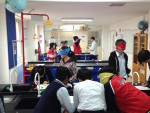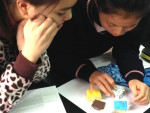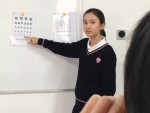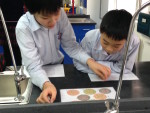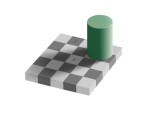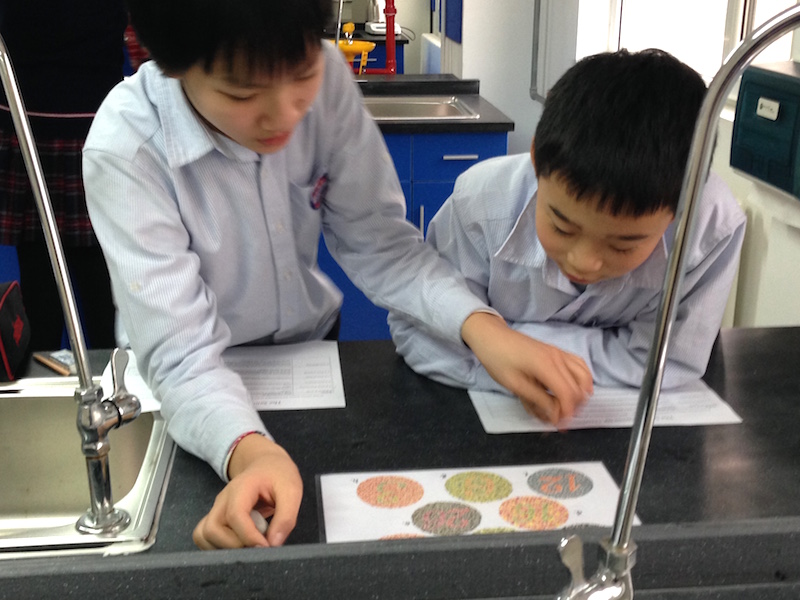
Making Sense of Our Senses
- Lots of different challenges get students asking questions and generating their own answers.
- How sensitive are we to the touch of different textures?
- Simple visual acuity tests
- Do we all see colours the same?
- Squares A and B are exactly the same shade of grey – believe it or not. Your brain interprets information through your senses, but makes a lot of guesses. We don’t always see what is really there!
Our senses are vital for our survival. They are our “windows on the world”. As part of our MYP unit of work on the senses, grades 7 and 8 have been exploring our senses. We started with the idea of 5 classical senses and slowly expanded our understanding to see how we actually have over 20 senses. By having the opportunity to do inquiry into the sensitivity of individual senses such as pressure, two-point touch discrimination, colour blindness, visual acuity, textures and tastes we have been able to explore how our senses limit our understanding of the world.
Students soon begin to ask questions such as, “Do we all see colours the same?” or “Why do we notice a ticking clock when we enter a room, but soon ignore it after a few minutes?” When they have a question, students can then develop their own hypothesis using scientific thinking, and design a fair test to generate data. This data they can analyse and process to accept or reject their own hypothesis. Being an inquirer is part of the IB learner profile and an important skill to develop as a life-long learner.
Because our sense organs are actually extensions of our brain throughout our body, the information we get back from our senses is the only information we get about the outside world. Unless we extend our senses by using artificial devices such as telescopes, microscopes, oscilloscopes and infra-red cameras we will only ever get a tiny picture of what reality is. Animals have different senses to our own. Even animals with the same senses as we have may detect the environment in a completely different way. The squeak of a mouse, for example, is actually its deepest voice. A bloodhound can detect smells at least 50 times better than a human. A bat can fly safely in complete darkness using echolocation.
We have learned about how to help protect our senses, particularly hearing, and we have also started to appreciate the difficulties that people with damaged or different senses have, and how we can make our world more accessible to them.
Along the way, we’ve learned a lot, been engaged and excited, asked a lot of questions – but most of all we’ve had a lot of fun!
